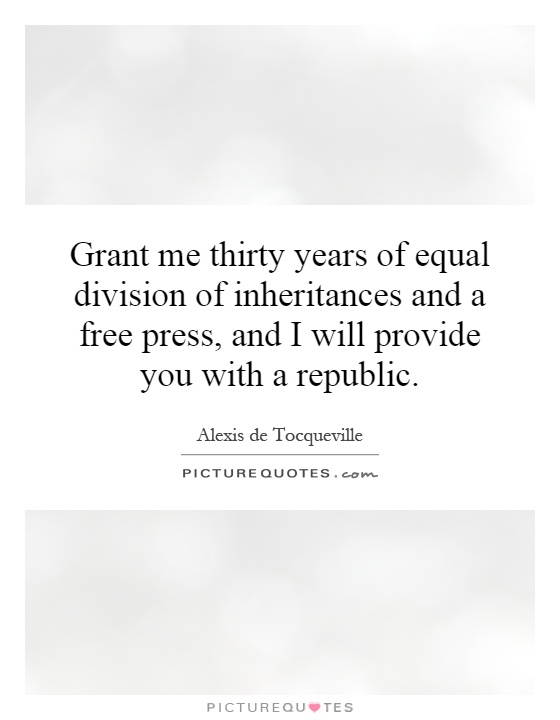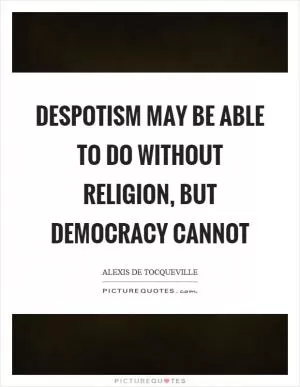Grant me thirty years of equal division of inheritances and a free press, and I will provide you with a republic

Grant me thirty years of equal division of inheritances and a free press, and I will provide you with a republic
Alexis de Tocqueville, a French political thinker and historian, is best known for his work "Democracy in America," in which he analyzed the American political system and society in the early 19th century. Tocqueville was a keen observer of the American experiment in democracy and sought to understand the factors that contributed to its success.One of the key principles that Tocqueville believed was essential for the success of a republic was the equal division of inheritances. In his view, the concentration of wealth and power in the hands of a few individuals could undermine the principles of democracy and lead to social unrest. By ensuring that inheritances were divided equally among all heirs, Tocqueville believed that a more equitable society could be created, where individuals had the opportunity to succeed based on their own merits rather than their family background.
Tocqueville also emphasized the importance of a free press in maintaining a healthy republic. A free press, in his view, was essential for holding those in power accountable and ensuring that the government remained transparent and responsive to the needs of the people. Without a free press, Tocqueville believed that corruption and tyranny could easily take hold, undermining the principles of democracy and leading to the erosion of individual freedoms.
By combining the principles of equal division of inheritances and a free press, Tocqueville believed that a republic could thrive and provide a stable and prosperous society for its citizens. He saw these principles as essential safeguards against the concentration of power and the abuse of authority, which could threaten the stability and integrity of a democratic system.












 Friendship Quotes
Friendship Quotes Love Quotes
Love Quotes Life Quotes
Life Quotes Funny Quotes
Funny Quotes Motivational Quotes
Motivational Quotes Inspirational Quotes
Inspirational Quotes